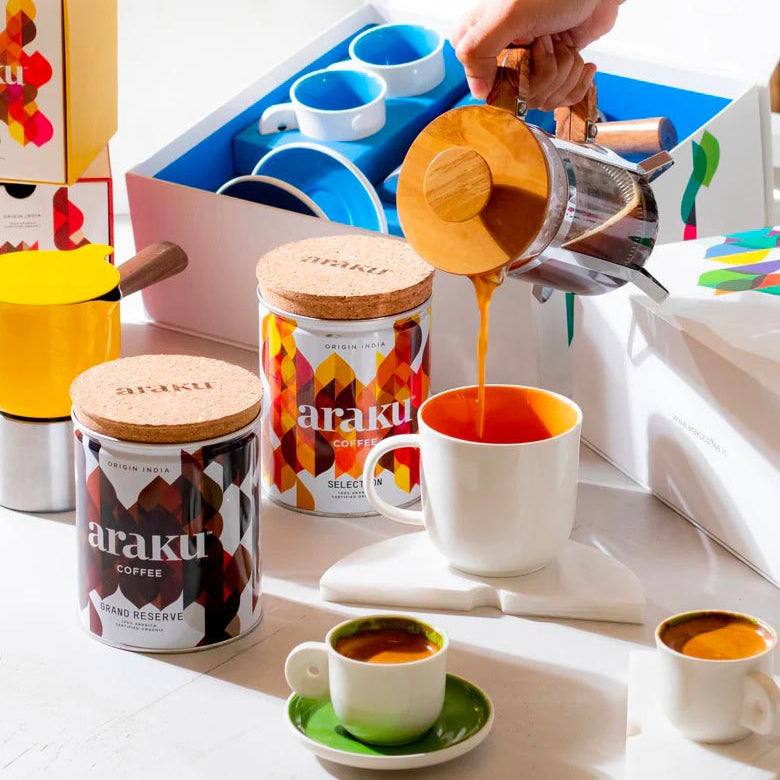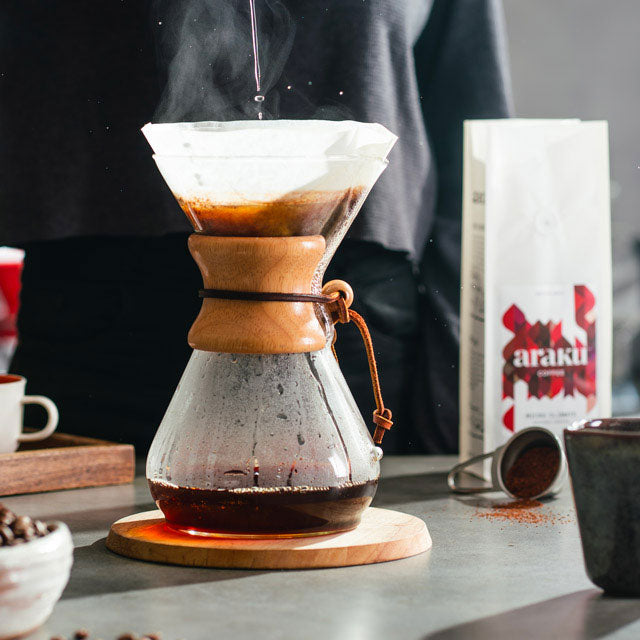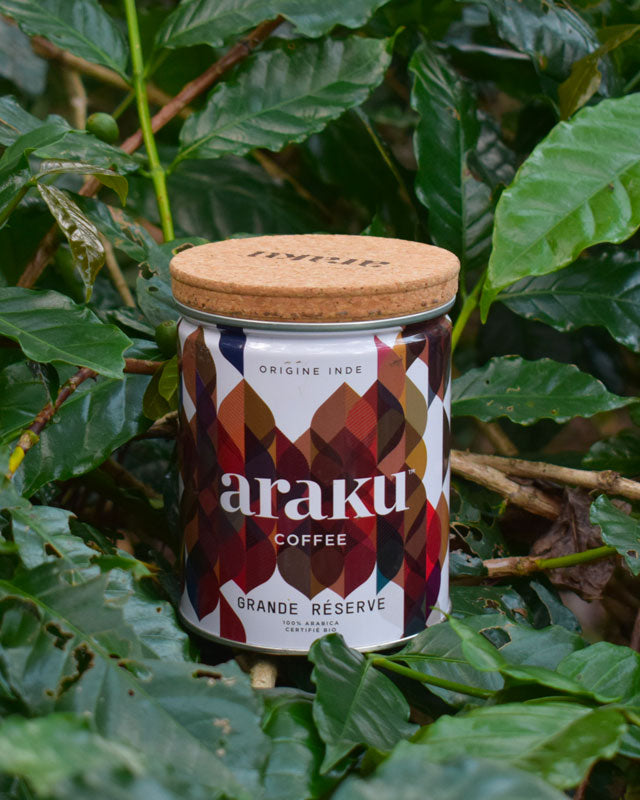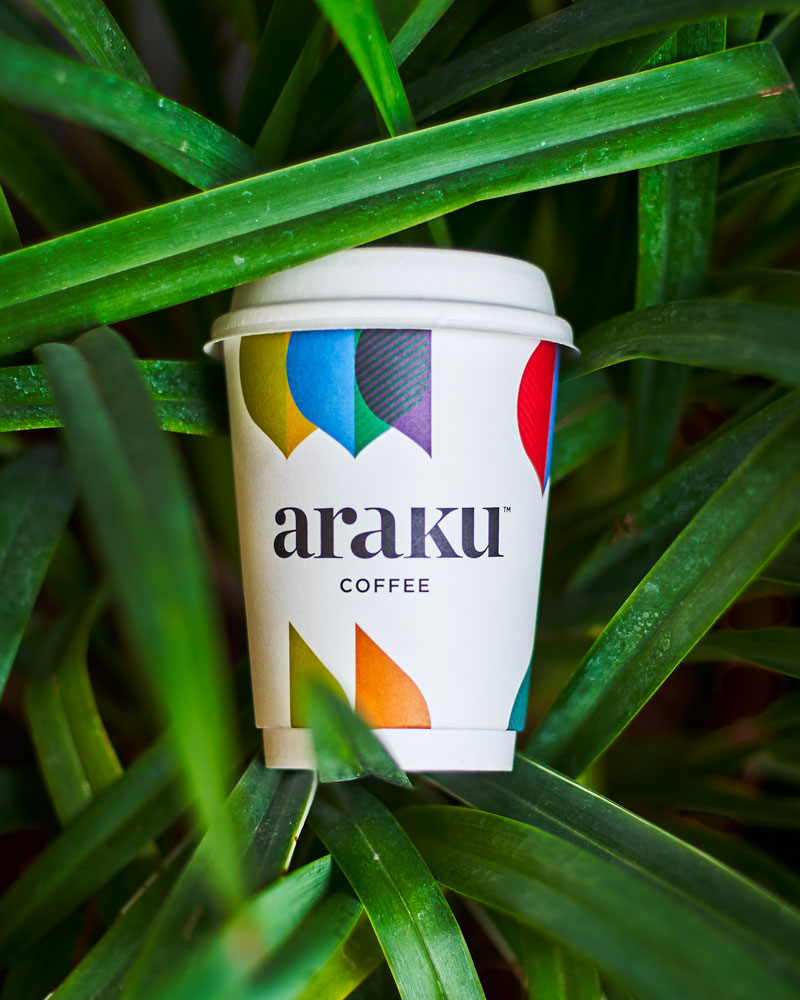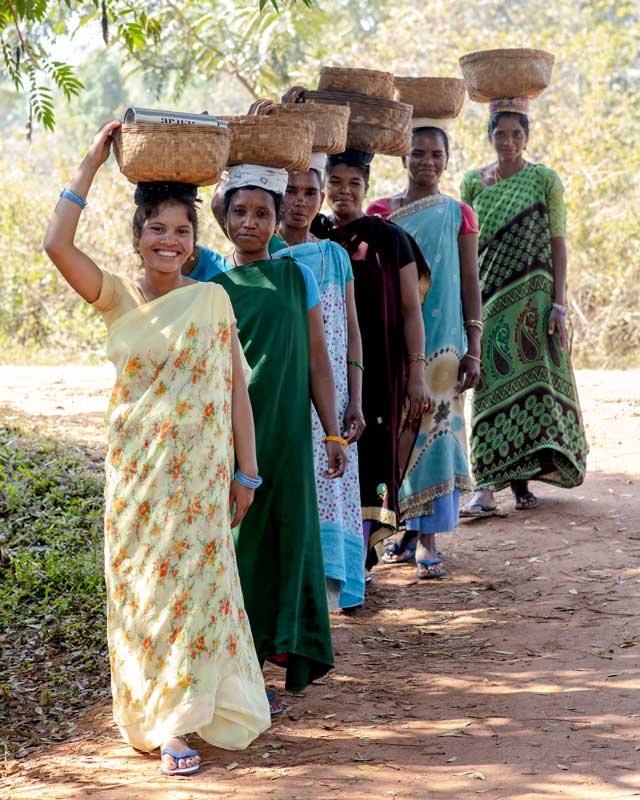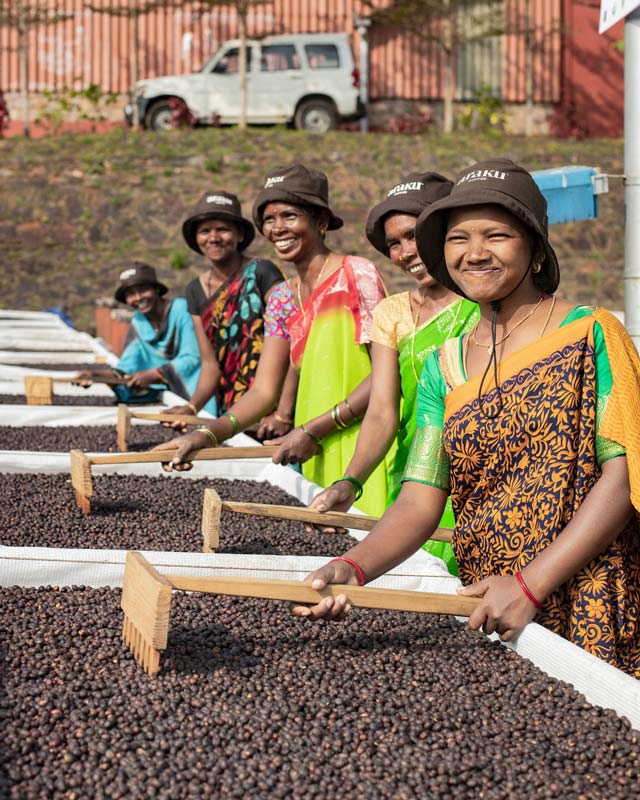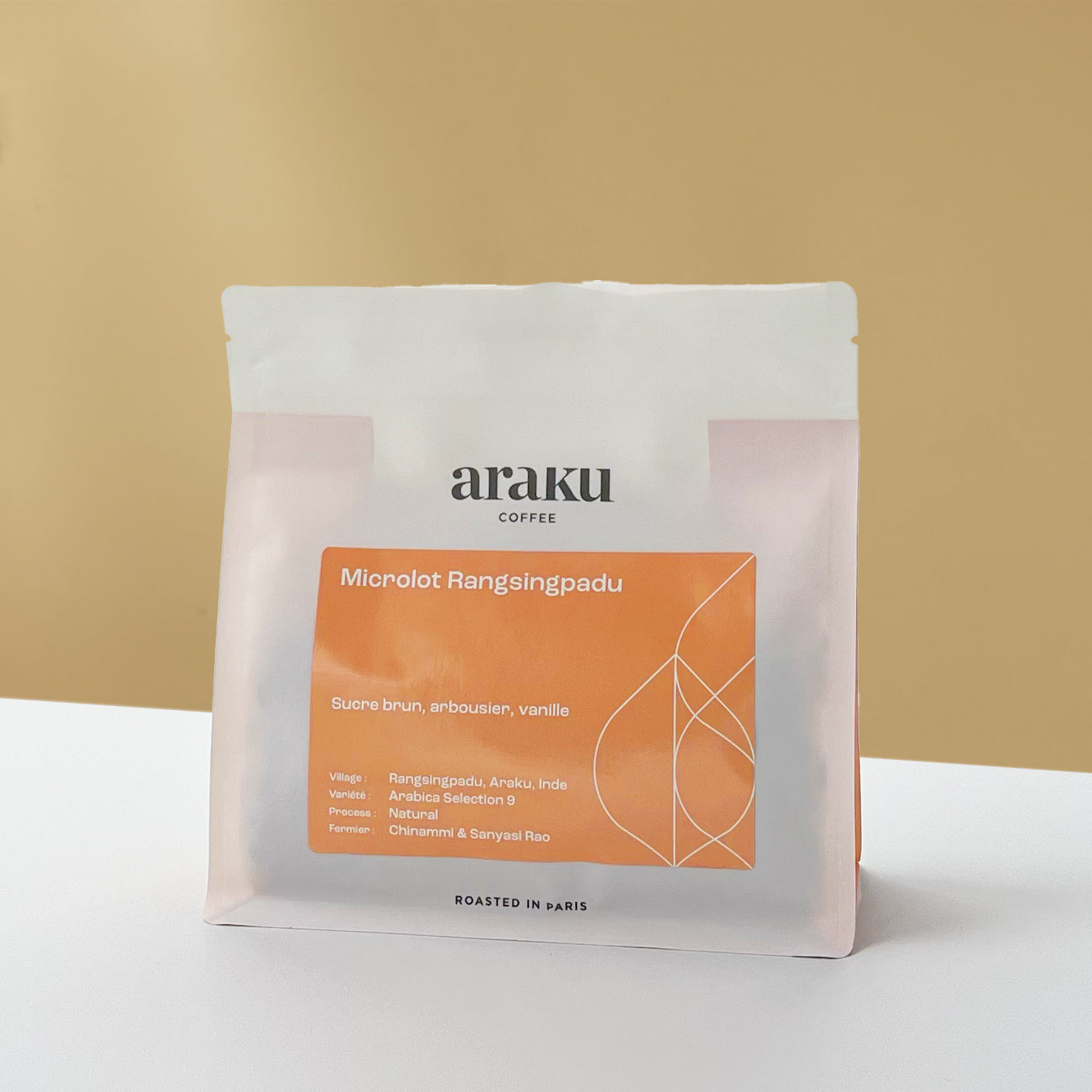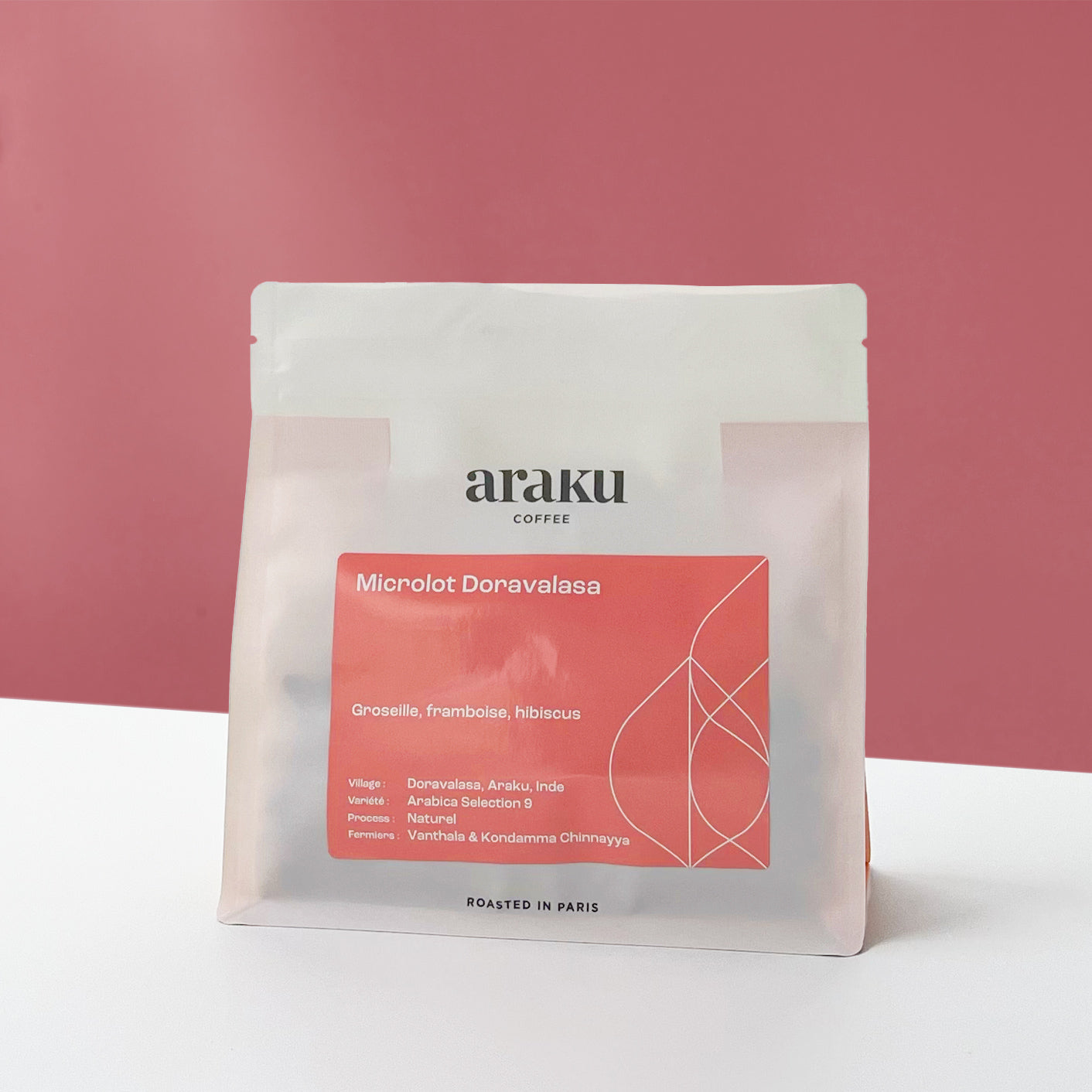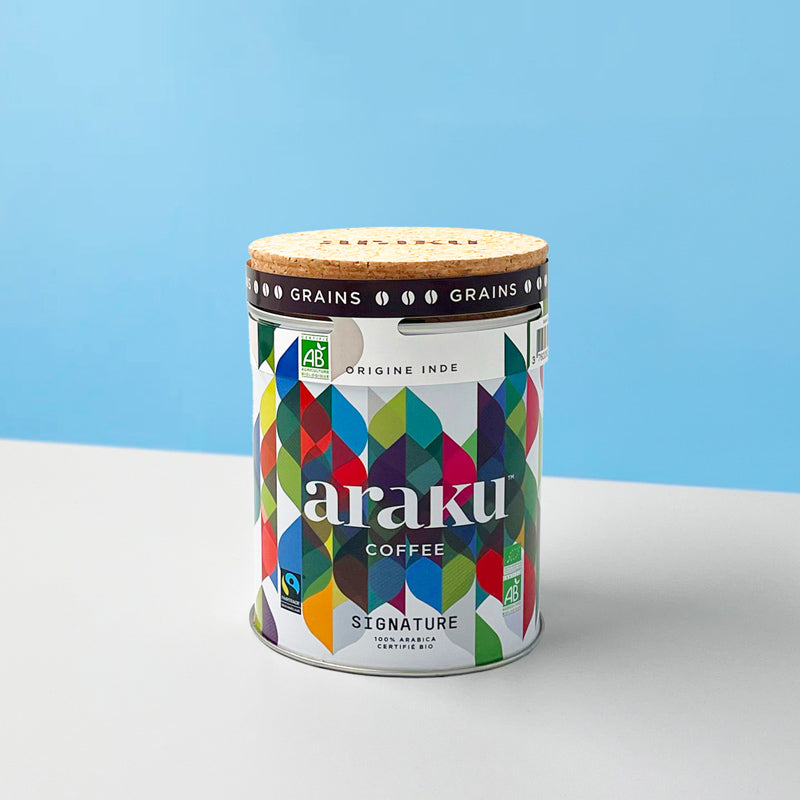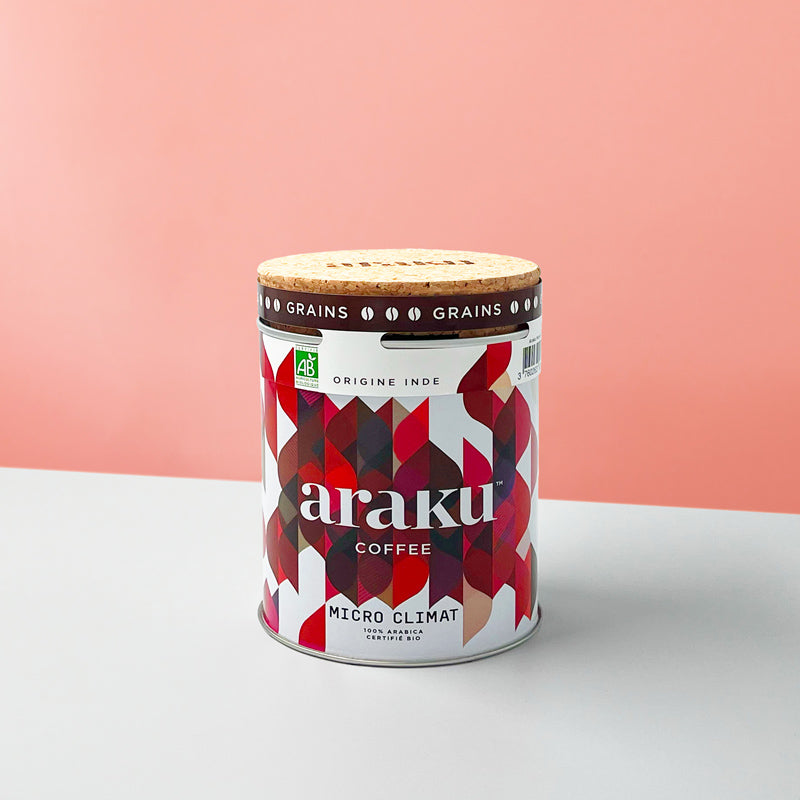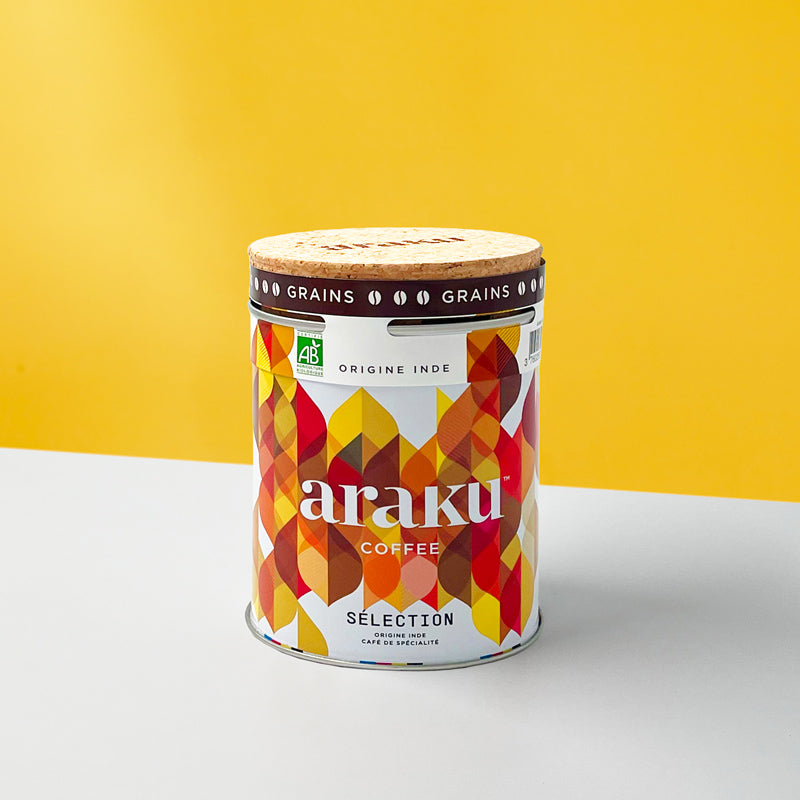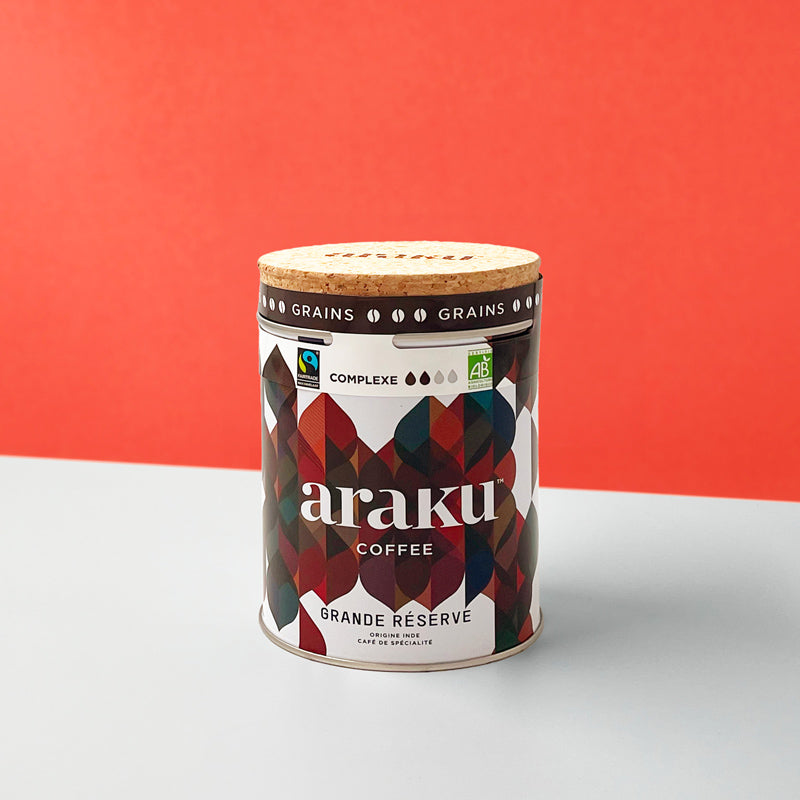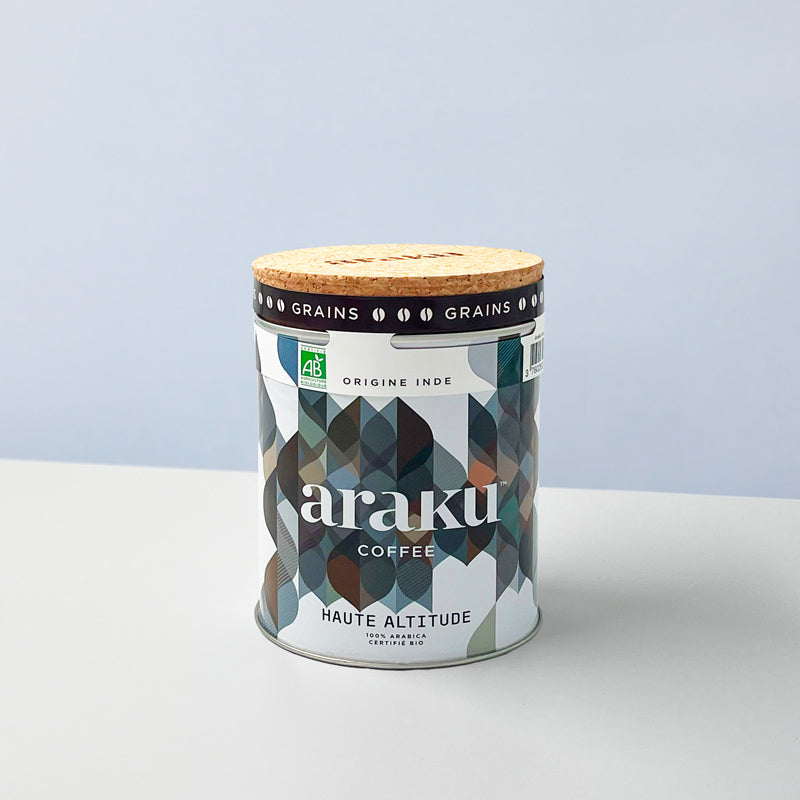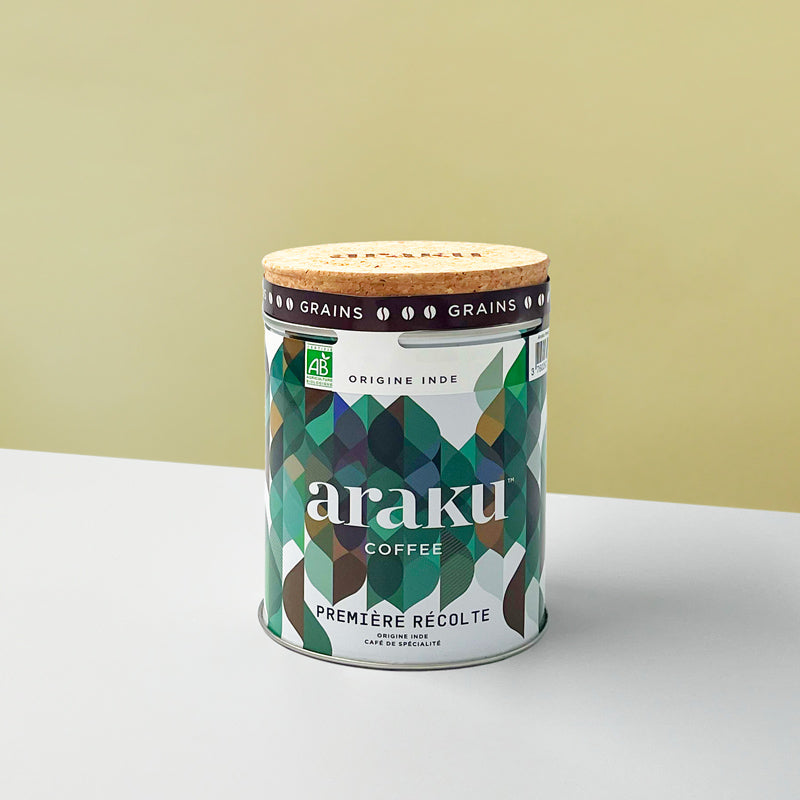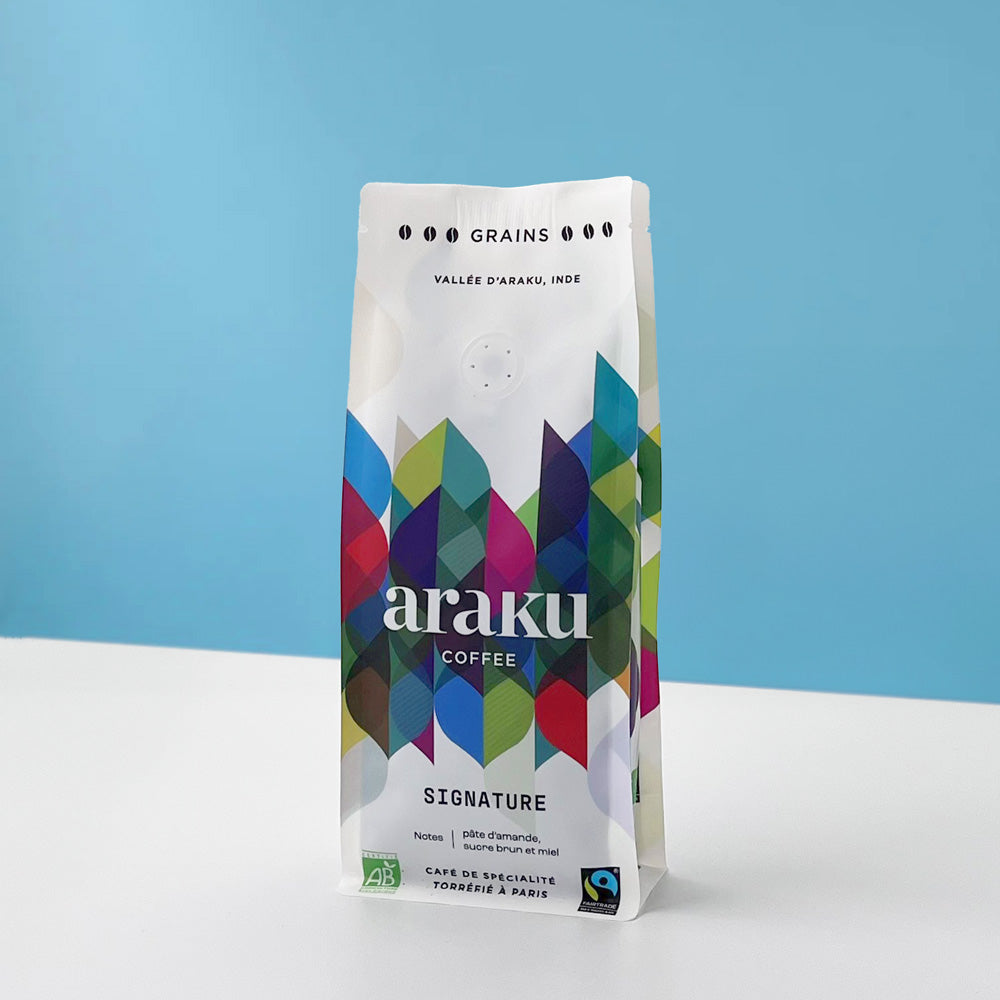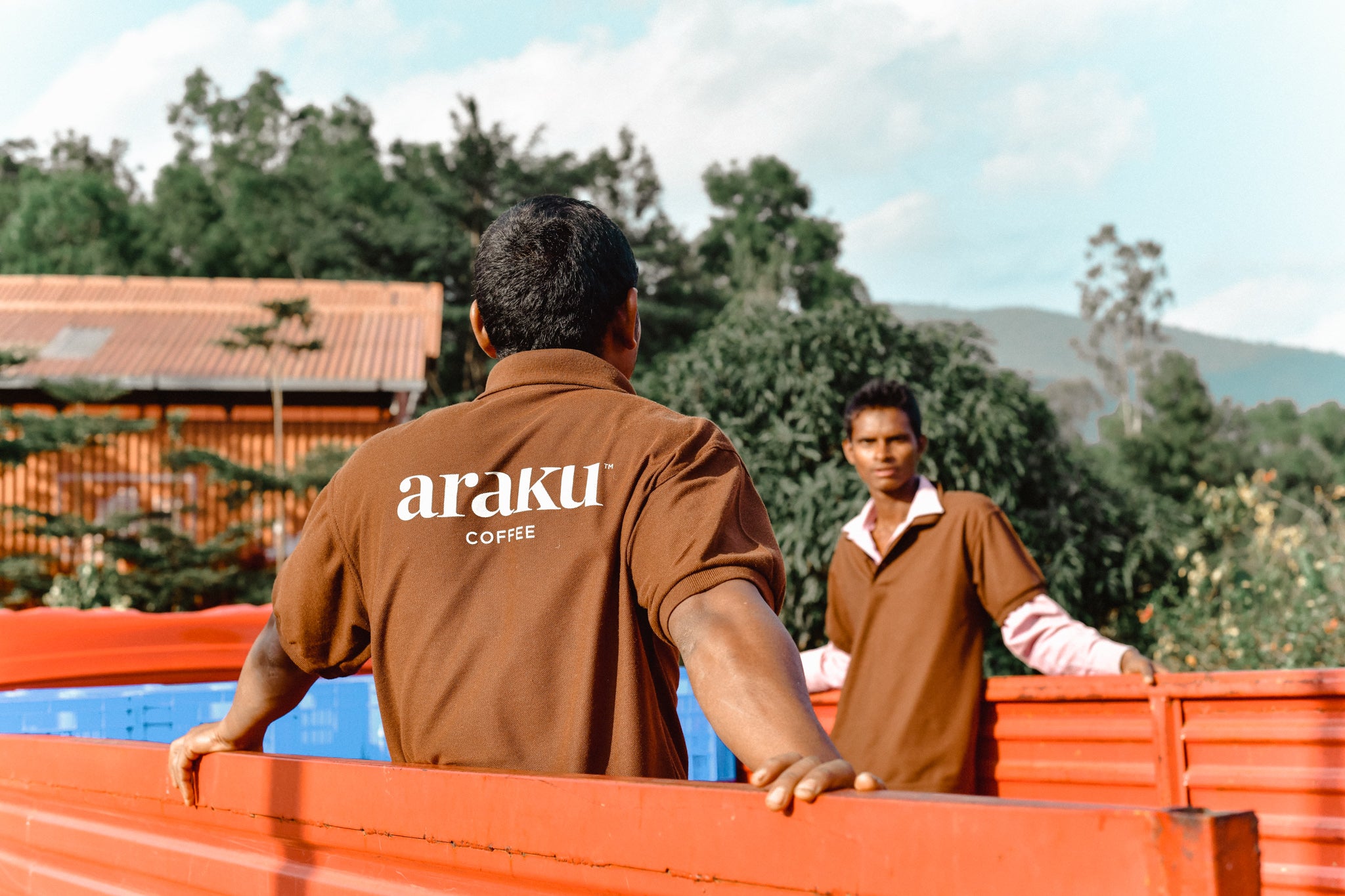COFFEE BLENDS, A BALANCED PROFILE
Before anything else, you should know that a coffee blend is a mixture of coffees from various origins or varieties. A blend allows a roaster to get a particular taste by changing the proportions of the various coffee beans he uses in the blend.
A very classic old school type of blend is made up of one part Arabica and one part Robusta. Robusta coffee is very bitter and has a very strong pungent taste, as well as a higher concentration in caffeine than Arabica. Arabica is less intense but has a lot of flavor and aromas. Combining the two gives us a coffee with a strong coffee with some more balanced tasting notes. This type of blend has been used in Italy for a long time.
In modern specialty coffee, blends don't typically use robusta. They instead blend Arabica coffees from different origins. Blending coffees makes it possible to better balance the aromatic palette of certain coffees. Blends can be used to balance for example a coffee that has too much acidity, or one that is too bitter. Thus a blend usually has a very simple taste profile in order to please as many people as possible. If the blending is successful, it can result in very delicious coffee. In addition, it is particularly suitable for beginners who are discovering this beverage. The main problem blend concerns is that you tend to loose the unique personality of the coffees and of the origins. Blends have less distinguishable flavors and aromas. This explains why coffee connoisseurs usually prefer single origin coffee.
SINGLE ORIGIN COFFEE, A UNIQUE TASTE AND EXPERIENCE
Unlike blends, single origin coffee comes from a single geographic region. These coffees have a strong character and intense and unique aromas. Single origin coffees are highly prized by those seeking a flavorful cup of coffee. Some very special single origin coffees need a trained palate in order to savor them fully, similarly to wine.
Blends are designed to please a large crowd. Single origin coffees simply present the aromas of a particular place (a unique farm, a valley, a region,...). These coffees have complex and unique flavors that may not please everyone. Single origin coffees are always 100% Arabica (unless specified otherwise). But with specialty single origin coffee, you get more than just this. Traceability is at the heart of the mouvement of specialty coffee, and therefore you will usually find more information than simply in which country it was produced. You will usually get information such as the Altitude at which the coffee was grown, the specific region, farm, or family that produced the coffee, and the sub-variety of Arabica. Some of these sub-varieties are incredibly flavorful and reach very high prices such as Geisha and Bourbon.
Keep in mind, however, that the choice of coffee should be made according to your taste preference. No need to go for a single origin if you prefer a more classic flavor profile. But if you would like to go towards more aromatic coffees, we obviously advise you to try our Araku single origin coffees.

